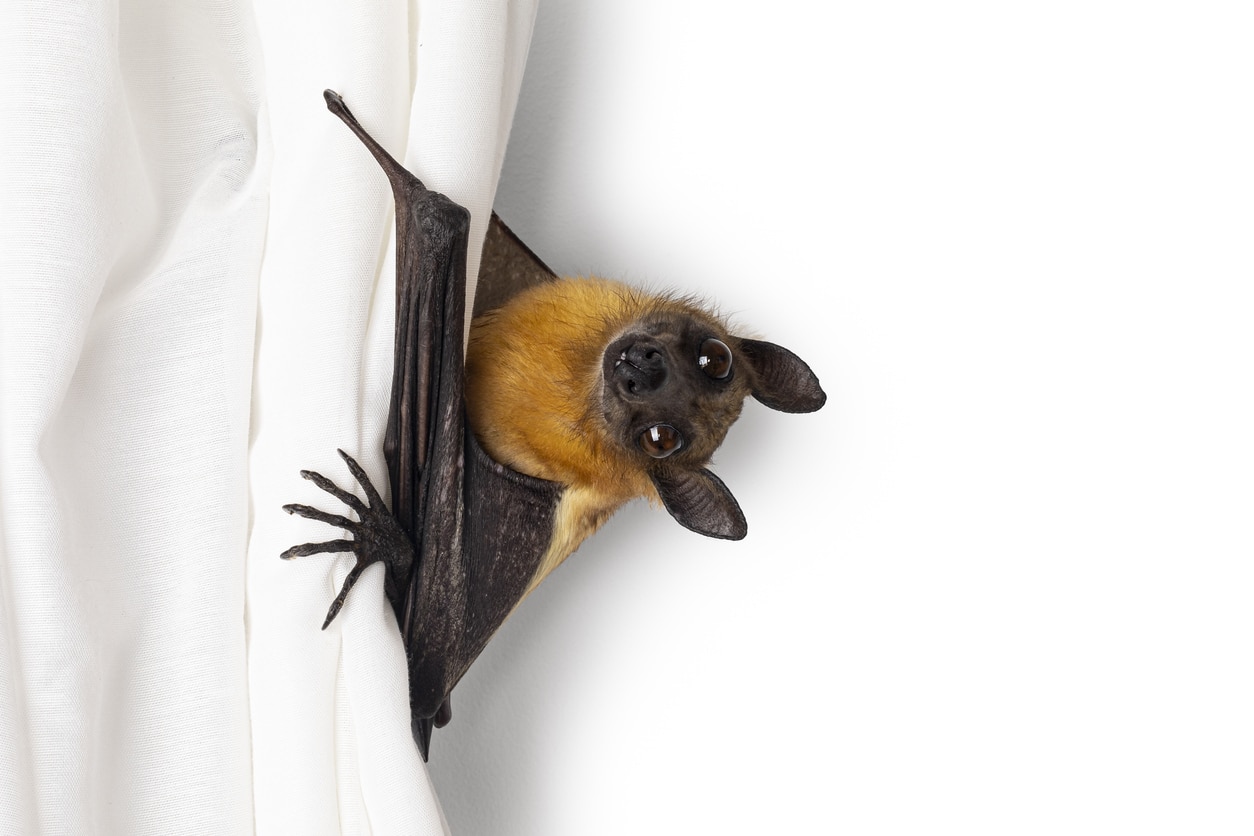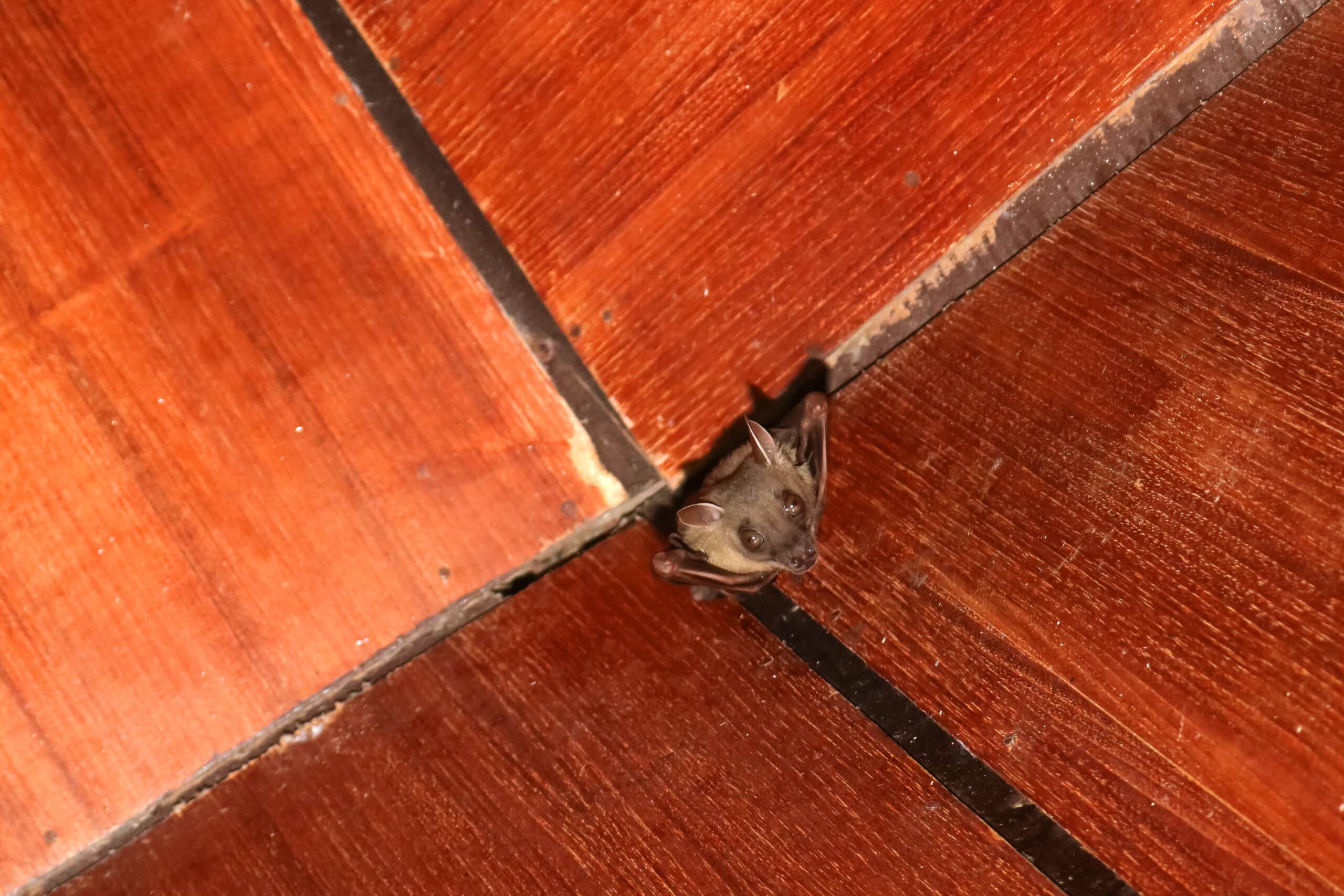You thought you got rid of them. The traps were set, the last one was…
Distemper in Animals
Cases of animal distemperment in Michigan are a frequent occurrence. It is sadly common to see distemper in squirrels, skunks, opossums, raccoons, and other wild and domestic carnivores. At Creature Control we get about a dozen calls per year to pick up distempered animals, especially raccoons and skunks. Even more calls come in from concerned pet owners inquiring about the disease and the frightening possibility of canine distemper.
Outbreaks are not restricted to Michigan, either; increases in distemperment incidences have been noted in Washington State, Kansas, Texas, Florida, and even as far away as Toronto. It is unknown how the epidemic came to Michigan, but the first reports of an outbreak in the state came out of Manistee County in 2008. From there it has spread throughout the state.
Below, we’ll answer some common questions about distemper and how to handle wild animals you suspect may be suffering from it. For emergency wildlife removal, you can always contact Creature Control online or by phone at 1-800-441-1519.
Symptoms of Distemper in Wild Animals
Initially, distempered animals may discharge fluid from their eyes and nose and may sneeze or drool excessively. One common symptom is that distemper causes normally nocturnal animals, such as raccoons, to wander about in broad daylight. Most people who have had encounters with distempered animals say that the animal is “acting drunk.” As the disease progresses, an animal infected by distemper will begin to exhibit strange behavior:
- Acting dazed, clumsy, or confused
- Staggering when walking
- Walking in circles
Besides exhibiting these behaviors, the animal will begin to fall down as the disease enters its last stage, the neurological phase. At this point, the infected animal will begin to have seizures that will eventually lead to death.
Distemper in Animals FAQ
What is animal distemperment?
Distemperment (sometimes simply called “distemper”) is a disease that affects raccoons, skunks, and other small mammals. It can be spread to unvaccinated dogs and cats as well. Distemperment is a virus that affects the respiratory, gastrointestinal, and central nervous system of affected animals and is almost always fatal.
How do animals get distemper? Can it spread to humans?
The virus is spread through the air by means of nasal discharge, coughing, and sneezing. Though humans cannot contract distemperment, it is of particular concern due to the fact that it can (and frequently does) spread from raccoons and skunks into domesticated dogs and cats, at which point it is usually termed feline or canine distemper virus.
Is distemper curable?
Once distemperment is evident in an animal, the disease progresses rapidly, killing the host in up to two weeks.
There is no cure for distemper. If your dog or cat has contracted the disease, the veterinarian may be able to treat the symptoms, but there is no cure for distemperment itself. Part of the problem is that distemperment is very difficult to diagnose until it has already reached the neurological stage, when the odd behavior and brain damage begins. By this time, it is too late. Treatment of distemper in pets is up to the individual conscience of the pet owner, of course, although most vets and animal control professionals recommend putting distempered animals to sleep.
Distemper vs. rabies: what’s the difference?
Animal distemper is almost always mistaken for rabies. Though the diseases do share many things in common, they are distinct. For one thing, distempered animals do not foam at the mouth, which is a common sign of rabies virus. Rabies can spread to humans, and indeed can effect a broad variety of animals, whereas distemperment is limited to canines, felines, and members of the weasel families, as well as raccoons.
Rabies is contracted only by bites from infected animals, whereas distemperment can be spread through the air. Compared to distemper, rabies is quite rare; distemperment is much more common. In fact, until the past generation, distemperment was the most common fatal disease of dogs.
Protecting Family Pets from Distemper
Though there is no cure, distemper vaccinations are available to prevent them from contracting it to begin with. The basic vaccine for dogs is “the distemper shot”, which protects against distemper, parvovirus, and other diseases. The vaccinations need to be repeated in order to keep your pet immune, however. Vets generally recommend a vaccination every 2 to 4 weeks from 12 to 16 weeks of age and an ongoing schedule of booster shots every 1 to 3 years afterward.
If your dog or cat suffers from distemperment, see a veterinarian immediately. If you should run across a distempered wild animal, like a raccoon or skunk stumbling around your yard, call an animal control professional, such as Creature Control. Distempered animals can be dangerous, not because distemperment necessarily makes animals more aggressive, but because distempered animals usually have impaired vision and are more frightened (and it is usually when an animal is frightened that it will bite). This is a concern because distempered animals may appear tame due to their slow, clumsy behavior. Do not approach or touch a distempered animal – call an animal control professional to remove it safely.
For Professional Help with Infected Animals, Contact Creature Control ASAP
Handling wild animals with distemper and rabies should always be left to experienced animal control professionals. For wildlife removal services in Michigan, please contact Creature Control online or by phone at 1-800-441-1519.


